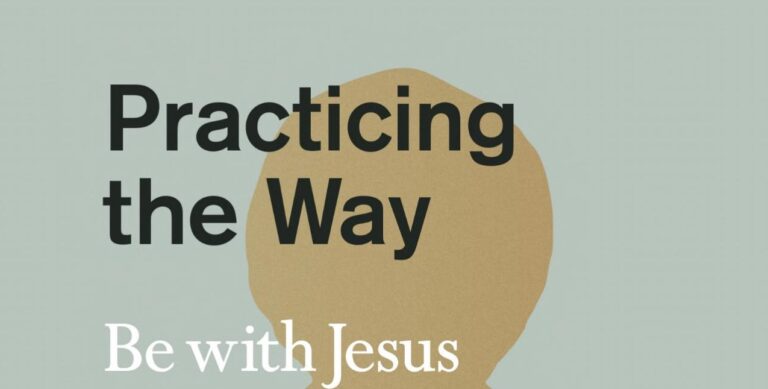Self-promotion has always been an unsettling idea for me (self promotion being exactly as it sounds: the promotion of myself or activities). Any attempt at it has always left me feeling like I just drank rotten milk; like something just isn’t right.
Now, I understand the irony of those statements, as I write this from a website that has my name plastered on the front of it. But I will admit it, I wrestle everyday with taking it down or changing the name because there is a tension in it that I just can’t seem to shake.
Of course, a website with my name in the address bar is a pretty minor promotion compared to the other ways in which we are tempted every day to put ourselves on display. Just think about all of the apps that we get swallowed up by? Listen to the names of these things: Facebook, YouTube. Self-promotion is built into their DNA; applications designed to put us front and centre. And it doesn’t stop there. Self-promotion is built into the very heart of our society. Your climb up the corporate ladder often largely depends on you being seen. As I have heard being rehearsed before as a kind of mantra of success, “To get promoted, you first have to promote yourself.”
At the end of the day what matters is whether or not Scripture addresses self promotion.
All that to say, the pressure toward self-promotion is everywhere, and it creates in me a strange tension.
Still, none of that in and of itself means it is wrong. The endless temptations to self-promote and the feelings that it gives me doesn’t necessarily mean there is anything inherently and universally wrong with a website that has my name on it, a Facebook account with my picture on it, or a CV with my skills on it.
At the end of the day what matters is whether or not Scripture addresses self promotion, and if it does, what does it have to say? What does God think of the temptation and act of the promotion of self.
He must Increase, I must Decrease
Every time I consider this topic my mind immediately goes to John 3:30. John the Baptist’s disciples are frazzled that there is a new Rabbi in town and that John’s own ministry is being threatened, and they say to John, “Rabbi, he who was with you across the Jordan, to whom you bore witness—look, he is baptizing, and all are going to him” (John 3.26). After a little analogy about the bride and the bridegroom, John responds with these words, speaking of Jesus himself: “He must increase, but I must decrease” (John 3.30).
Of all the words in that sentence, perhaps the most passed over and yet the most important is the little word must. “He must increase, but I must decrease” (John 3.30). It is would be easy and natural to think that this increase and decrease is John’s own decision; that the must is John’s determination to make this swap with Jesus. And yet the must here has a different kind of force.
It is the same force that appears in Jesus’ words about future tribulations in the Gospel of Matthew, “And you will hear of wars and rumors of wars. See that you are not alarmed, for this must take place, but the end is not yet” (Mt. 24.6). It is the same force in Jesus’ words about his own death in the Gospel of Luke, “The Son of Man must suffer many things and be rejected by the elders and chief priests and scribes, and be killed, and on the third day be raised” (Luke 9.22).
John’s ministry is going to decrease and Jesus’ ministry is going to increase for the same reason that Jesus’ death and resurrection was going to come, and wars after that – because it was the pre-determined will of God. In other words, John isn’t making something happen, John is embracing what will happen according to the will of God.
The Ultimate aim
The big truth that comes out of all of that is this: that it was and/is God’s Will for Jesus to take and have centre stage in the world. John had a beautiful role in preparing peoples’ hearts for Jesus’ arrival. But John seems to understand better than anyone that he was never the goal; that he was the servant, and Christ was the aim; that the will of God was always for Jesus to have supremacy.
And it is actually because of this understanding that when Jesus comes on to the scene and John’s ministry begins to fade, instead of smouldering with his disciples John says, “This joy of mine is now complete” (John 3.29). He celebrates this advance to the next stage in God’s determined will, because his joy isn’t tied up in the advance of his own ministry, it is in being apart of the will and plan of God, and in that seeing Christ reign.
Now, what does that have to do with our culture and the act of self promotion? I think at the very least it’s a powerful reminder to us in the midst of the temptations to self-promote for our own gain and advance, that the ultimate aim of the universe is not our supremacy but the supremacy of Jesus Christ. As Paul says to church in Colossae, “And he is the head of the body, the church. He is the beginning, the firstborn from the dead, that in everything he might be preeminent” (Col. 1.16).
Really simply, we are not the point. And any self-promotion that has us as the end runs contrary to Gods determined will. But not only that, it also works against our own joy since the fullness of human joy is found in living in conjunction with God’s will.
So, should you have a website or a company with your name on it. I don’t know. I don’t know that it is that black and white. What I do know is that one day, according to the perfect will of God, every knee will bow down in heaven and on earth and under the earth, and every tongue will confess that Jesus Christ is Lord (Phil. 2.10-11). And I want to be sure on that day that everything I did and said in this life was unquestionably about advancing His kingdom and not my own.
I want my joy to have being so tied to Jesus and His exaltation, that when I finally lay eyes on Him and everything that I have done in this life fades into the background, I can say wholeheartedly with John the Baptist, “My joy has been made full.” (John 3).
























